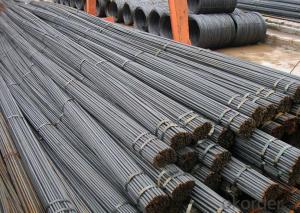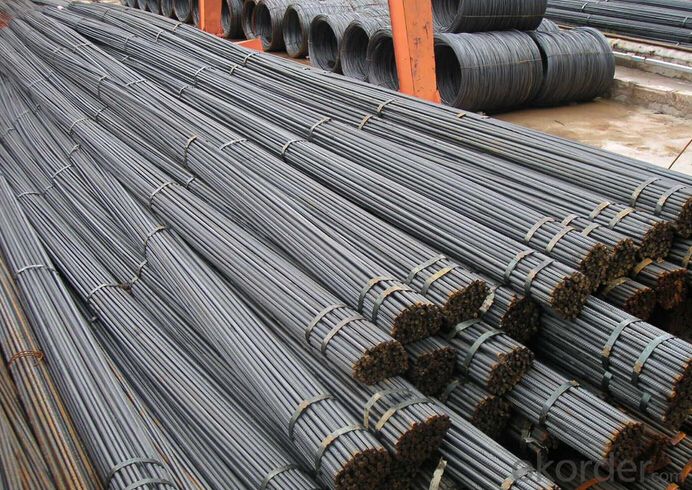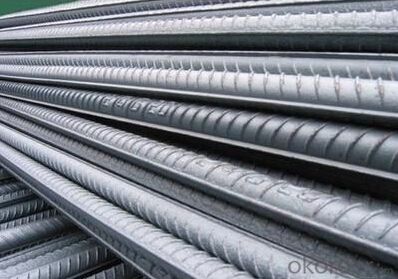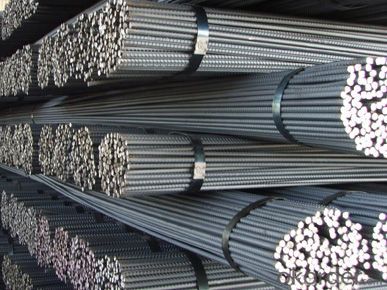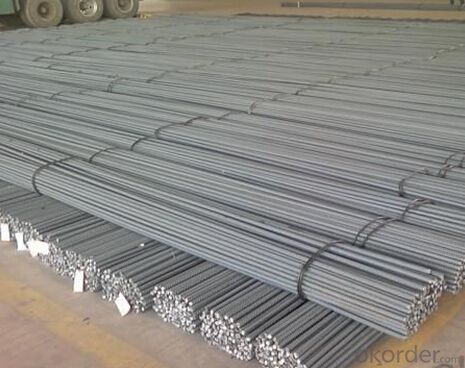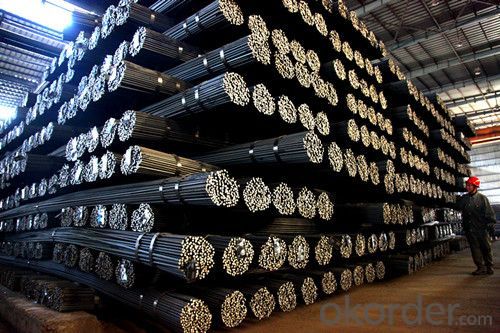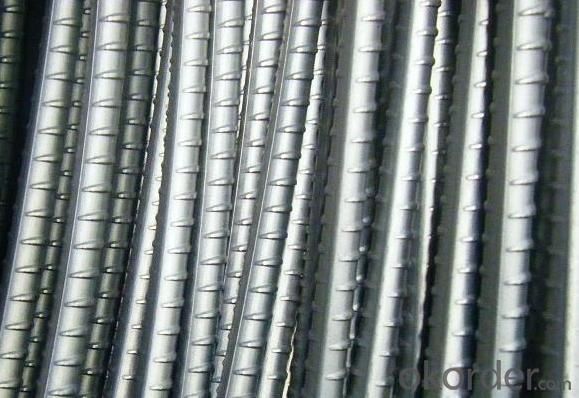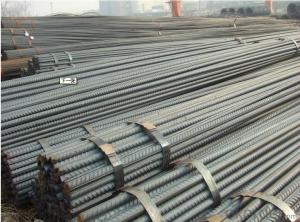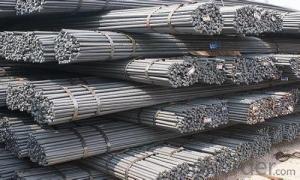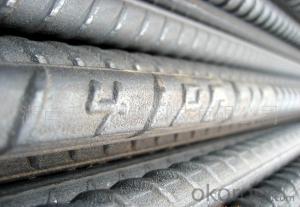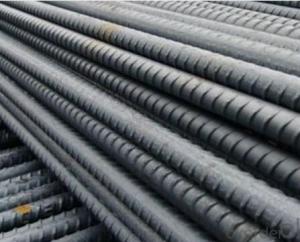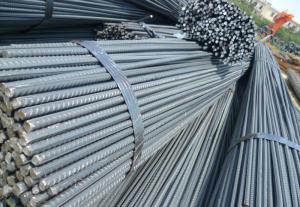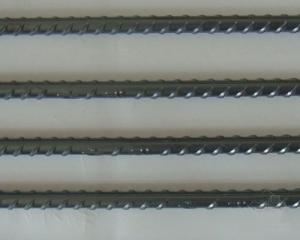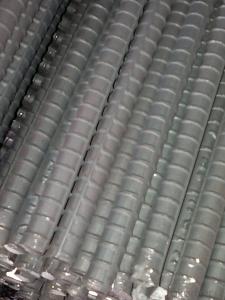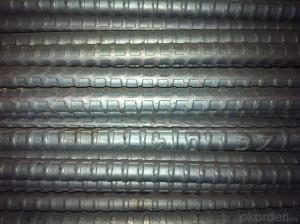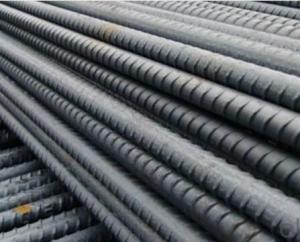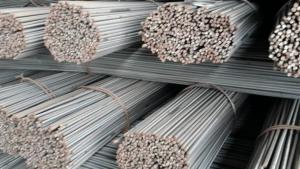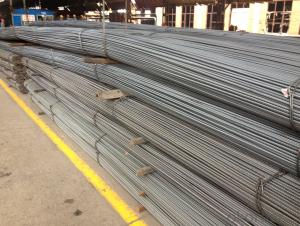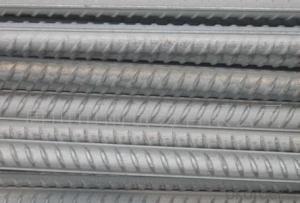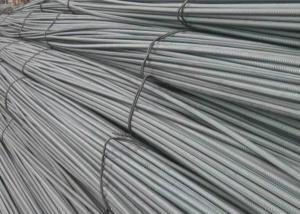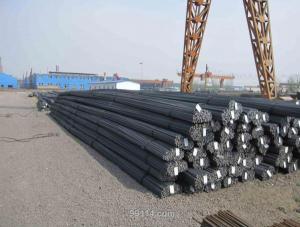10mm Construction Hot Rolled Deformed Steel Rebar
- Loading Port:
- Tianjin
- Payment Terms:
- TT OR LC
- Min Order Qty:
- 100 m.t.
- Supply Capability:
- 10000 m.t./month
OKorder Service Pledge
Quality Product, Order Online Tracking, Timely Delivery
OKorder Financial Service
Credit Rating, Credit Services, Credit Purchasing
You Might Also Like
Specification
Standard:
AISI,ASTM,JIS,GB,BS,DIN,API,EN
Technique:
Hot Rolled,Cold Rolled,Cold Drawn,ERW,Forged,Saw,Extruded,EFW,Spring
Shape:
U Channel,Square,C Channel,Hexagonal,Round,Rectangular,Oval,LTZ
Surface Treatment:
Galvanized,Coated,Copper Coated,Color Coated,Oiled,Dry,Chromed Passivation,Polished,Bright,Black,PVDF Coated
Steel Grade:
Q195,Q215,Q215B,Q235B,RHB335,HRB400,200 Series,300 Series,400 Series,600 Series,SS400-SS490,10#,20#,A53(A,B),Q235
Certification:
ISO,SGS,BV,IBR,RoHS,CE,API,BSI,UL
Thickness:
6-34mm
Width:
6-34mm
Length:
12
Outer Diameter:
6-32mm
Net Weight:
10kg
Packaging:
seaworthy packaging
10mm Construction Hot Rolled Deformed Steel Rebar
Details of the 10mm Construction Hot Rolled Deformed Steel Rebar
| Standard & Grade: | GB1499-98 : HRB335,HRB400,HRB500 |
| BS4449-1997 : GR460,GR500 | |
| CAN/CSA-G30.18-M92 : 400W | |
| ASTM A615 : Gr.40, Gr.60 | |
| Diameter: | 6mm;8mm;10mm;12mm;14mm;16mm;18mm;20mm;22mm;25mm;28mm;30mm;32mm;35mm;40mm |
| Length: | 6m,9m,12m |
| Packing: | Bundle packing |
| Origin: | China |
| Application: | Construction,Road,Machinery processing,Welding fields. |
| Delivery time: | 10-25 days |
| Shipment: | By bulk vessel or Container |
| Documents: | Mill Test Certificate,Commercial Invoice,Packing List,Certificate of Origin |
Company Introduction of the 10mm Construction Hot Rolled Deformed Steel Rebar
CNBM International Corporation is the most import and export platform of CNBM group(China National Building Material Group Corporation) ,which is a state-owned enterprise, ranked in 270th of Fortune Global 500 in 2015.
With its advantages, CNBM International are mainly concentrate on Cement, Glass, Iron and Steel, Ceramics industries and devotes herself for supplying high quality series of refractories as well as technical consultancies and logistics solution.
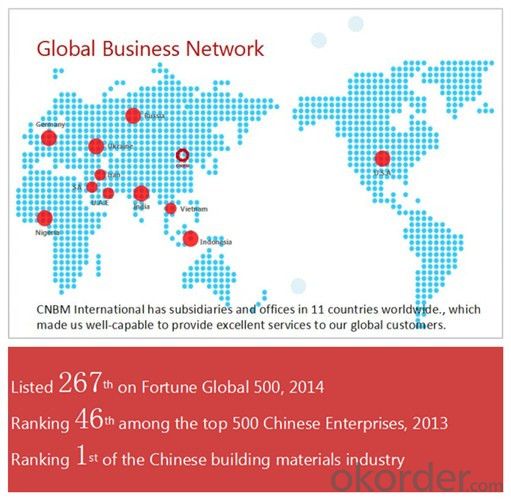
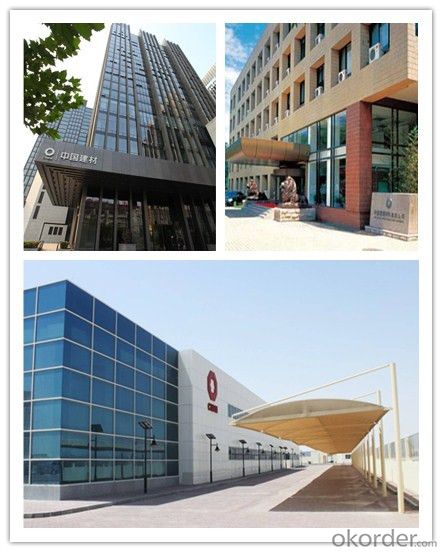
Packaging & Delivery of the 10mm Construction Hot Rolled Deformed Steel Rebar
| Packaging Detail | Sea worthy packing /as per customer's packing instruction |
| Delivery Detail | 15 ~ 40 days after receiving the deposit |
FAQ
| Are you a trading company or manufacturer? | Manufacturer |
| What’s the MOQ? | 1000m2 |
| What’s your delivery time? | 15-20 days after downpayment received |
| Do you Accept OEM service? | Yes |
| what’s your delivery terms? | FOB/CFR/CIF |
| What's the Payment Terms? | 30% as deposit,70% before shipment by T/T |
| Western Union acceptable for small amount. | |
| L/C acceptable for large amount. | |
| Scrow ,Paybal,Alipay are also ok | |
| Why choose us? | Chose happens because of quality, then price, We can give you both. Additionally, we can also offer professional products inquiry, products knowledge train (for agents), smooth goods delivery, excellent customer solution proposals. |
| What's your available port of Shipment? | Main Port, China |
| What’s your featured services? | Our service formula: good quality+ good price+ good service=customer's trust |
| Where are your Market? | Covering more than 160 countries in the world |
- Q: What are the guidelines for proper curing of concrete structures with steel rebars?
- Proper curing of concrete structures with steel rebars is essential to ensure their strength, durability, and longevity. Here are some guidelines to follow for the proper curing of such structures: 1. Moisture Control: During the curing process, it is crucial to maintain a moist environment around the concrete structure. This can be achieved by covering the surface of the concrete with a plastic sheet or using a curing compound. This helps to prevent the evaporation of water from the concrete, which can lead to shrinkage, cracking, and reduced strength. 2. Duration of Curing: The duration of curing depends on various factors such as the type of concrete mix, environmental conditions, and the size and complexity of the structure. Generally, curing should continue for a minimum of 7 days to allow the concrete to gain sufficient strength. However, for structures with steel rebars, it is recommended to extend the curing period to 14-28 days to ensure proper hydration and bonding between the concrete and steel. 3. Temperature Control: Temperature plays a vital role in the curing process. It is important to avoid extreme temperature fluctuations during curing, as they can negatively impact the strength and durability of the concrete. If the temperature is too high, it may cause rapid drying and shrinkage, leading to cracks. On the other hand, freezing temperatures can impede proper hydration. Therefore, maintaining a moderate and consistent temperature is crucial for effective curing. 4. Protection from External Factors: During the curing period, the concrete structure should be protected from external factors that can harm its integrity. This includes preventing the structure from being exposed to direct sunlight, rain, strong winds, or any other adverse weather conditions. Additionally, it is essential to protect the concrete from any potential damage caused by construction activities or heavy loads during the curing process. 5. Regular Inspection and Maintenance: Regular inspection of the concrete structure during the curing process is necessary to identify any potential issues such as cracks, honeycombing, or inadequate curing. Any such issues should be addressed promptly to prevent further damage. Additionally, once the curing process is complete, it is important to implement a proper maintenance plan to ensure the long-term durability and structural integrity of the concrete structure. By following these guidelines, proper curing of concrete structures with steel rebars can be achieved, resulting in strong, durable, and reliable construction.
- Q: How do steel rebars impact the overall aesthetics of concrete structures?
- Steel rebars have a significant impact on the overall aesthetics of concrete structures. While concrete is known for its strength and durability, it lacks the tensile strength to resist bending or stretching forces. This is where steel rebars come into play. By reinforcing concrete with steel rebars, the structural integrity of the concrete is greatly enhanced. This allows engineers and architects to design more complex and ambitious structures, such as high-rise buildings, bridges, and stadiums. The use of steel rebars provides the necessary strength and flexibility to withstand heavy loads, seismic activity, and other environmental forces. However, the presence of steel rebars can affect the appearance of the concrete structure. In some cases, particularly in exposed concrete finishes, the visibility of steel rebars can be seen as a visual distraction or an undesirable element. The exposed steel rebars may create a grid-like pattern or a rusty appearance, which can be perceived as unattractive or out of harmony with the surrounding environment. To mitigate this aesthetic impact, various techniques are employed. One common approach is to use concrete coverings or coatings to hide the steel rebars and create a smooth and uniform surface. These coverings not only serve the purpose of improving the appearance but also provide protection against corrosion and extend the lifespan of the structure. Another method is to employ decorative techniques such as formwork or molds to create unique patterns or textures on the concrete surface. This way, the steel rebars are concealed within the design, adding to the overall aesthetic appeal of the structure. By incorporating architectural features, such as curves or geometric shapes, the presence of steel rebars can be turned into a visual asset rather than a hindrance. It is worth noting that in certain architectural styles, such as Brutalism, the raw and exposed nature of concrete structures, including the visibility of steel rebars, is celebrated as an artistic expression. In these cases, the industrial and utilitarian aesthetic is embraced, and the steel rebars become an integral part of the overall design concept. In conclusion, steel rebars have a significant impact on the aesthetics of concrete structures. While their presence can sometimes be seen as an obstacle to achieving a desired visual outcome, various techniques and design approaches can be employed to either conceal or incorporate steel rebars into the overall architectural design, resulting in aesthetically pleasing and structurally sound concrete structures.
- Q: Are there any limitations or restrictions on using steel rebars in construction?
- Steel rebars in construction have certain limitations and restrictions. Here are some of them: 1. Corrosion: Moisture and certain chemical environments can cause steel rebars to corrode, weakening them over time and compromising the structural integrity of the construction. To address this limitation, protective coatings or stainless steel rebars can be employed. 2. Fire Resistance: When exposed to high temperatures during a fire, steel rebars can lose strength and become malleable, leading to potential structural failure. Fireproof coatings or concrete encasement can enhance the fire resistance of steel rebars. 3. Weight: Large-scale construction projects may face challenges in transportation, handling, and installation due to the significant weight of steel rebars. Additional labor or equipment may be necessary, increasing project costs. 4. Thermal Expansion: Steel's high coefficient of thermal expansion causes it to expand and contract significantly with temperature changes. This can result in thermal stresses and concrete cracking around the rebars. Proper design techniques and the use of expansion joints can mitigate this limitation. 5. Electromagnetic Interference: Steel rebars can interfere with electromagnetic signals used in communication systems or sensitive electronic equipment, which is crucial to consider when constructing buildings with specific requirements, such as hospitals or laboratories. 6. Cost: The cost of steel rebars can fluctuate based on market conditions, availability, and quality, impacting the overall budget of construction projects, especially when large quantities are needed. It is important to acknowledge that despite these limitations, steel rebars are widely used in construction due to their strength, durability, and availability. Proper design, construction techniques, and maintenance can help overcome these limitations, ensuring the safe and efficient use of steel rebars in buildings and infrastructure.
- Q: How do steel rebars affect the overall cost of maintenance and repairs?
- Steel rebars can significantly impact the overall cost of maintenance and repairs. These reinforcement bars enhance the strength and durability of concrete structures, reducing the likelihood of cracks, deterioration, and structural failures over time. By preventing such issues, steel rebars minimize the need for extensive repairs and maintenance, ultimately lowering associated costs in the long run.
- Q: What is the ductility of steel rebars?
- The ductility of steel rebars refers to their ability to deform and stretch without breaking during tension or bending. Steel rebars are known for their excellent ductility, which allows them to absorb and dissipate energy when subjected to high loads or seismic forces. This property is essential in construction, as it ensures that the rebars can withstand extreme conditions and maintain structural integrity. The ductility of steel rebars also makes them suitable for various applications, such as reinforcing concrete structures and providing support in buildings, bridges, and other infrastructure projects.
- Q: What are the different grades of steel rebars used in bridge construction?
- The different grades of steel rebars used in bridge construction vary depending on the specific requirements and design specifications of the bridge. Common grades include Grade 40, Grade 60, and Grade 75. These grades indicate the minimum yield strength of the steel rebar, with higher grades offering greater strength. The choice of grade depends on factors such as the anticipated loads, span length, and structural design of the bridge.
- Q: How do steel rebars affect the overall vibration control of a structure?
- Steel rebars can significantly enhance the overall vibration control of a structure. The presence of rebars increases the stiffness and strength of the structure, thereby reducing excessive vibrations or oscillations. By effectively distributing and dissipating dynamic loads, rebars help to minimize the amplitude and frequency of vibrations, ensuring better structural stability and performance. Additionally, rebars also improve the overall ductility and energy absorption capacity of the structure, making it more resistant to vibrations caused by external forces or natural events such as earthquakes.
- Q: Can steel rebars be used in structures with limited construction regulations?
- Structures with limited construction regulations may incorporate steel rebars, but it is crucial to acknowledge that the building's safety and structural integrity may be compromised in the absence of suitable regulations. Reinforcing concrete structures with steel rebars is a common practice to provide strength and stability. Nevertheless, relying solely on rebars does not guarantee the structure's safety. Construction regulations are in place to ensure that buildings are designed and constructed to withstand diverse forces and loads, such as wind, earthquakes, and live loads. These regulations encompass fire safety, electrical systems, and accessibility as well. Without adhering to these regulations, there is an elevated risk of structural failure or other safety concerns. Incorporating steel rebars into structures without appropriate construction regulations may result in inadequately designed or constructed buildings that cannot withstand these forces and loads. This can lead to structural failure, collapse, or other hazards. Therefore, it is advisable to comply with local construction codes and regulations to ensure the safety and longevity of any structure.
- Q: How do steel rebars affect the overall cost of a construction project?
- Steel rebars can significantly affect the overall cost of a construction project. They are essential for providing structural strength and reinforcement to concrete structures, ensuring durability and safety. The cost of steel rebars depends on factors such as quantity, grade, and market price fluctuations. However, since rebars are often a major component in construction projects, their cost can significantly impact the overall budget, making it crucial to carefully estimate and manage their use to ensure cost-effectiveness.
- Q: Do steel rebars increase the overall weight of a structure?
- Yes, steel rebars do increase the overall weight of a structure. Rebars are typically added to reinforce concrete structures, providing tensile strength to counteract the concrete's weakness in handling tension forces. Steel rebars are made of steel, which is a dense and heavy material. When incorporated into a structure, the weight of the rebars adds to the total weight of the construction. However, the additional weight is usually negligible compared to the overall weight of the structure, especially in large-scale projects. The benefits of using steel rebars in terms of structural integrity and durability far outweigh the minimal increase in weight they contribute.
Send your message to us
10mm Construction Hot Rolled Deformed Steel Rebar
- Loading Port:
- Tianjin
- Payment Terms:
- TT OR LC
- Min Order Qty:
- 100 m.t.
- Supply Capability:
- 10000 m.t./month
OKorder Service Pledge
Quality Product, Order Online Tracking, Timely Delivery
OKorder Financial Service
Credit Rating, Credit Services, Credit Purchasing
Similar products
Hot products
Hot Searches
Related keywords
